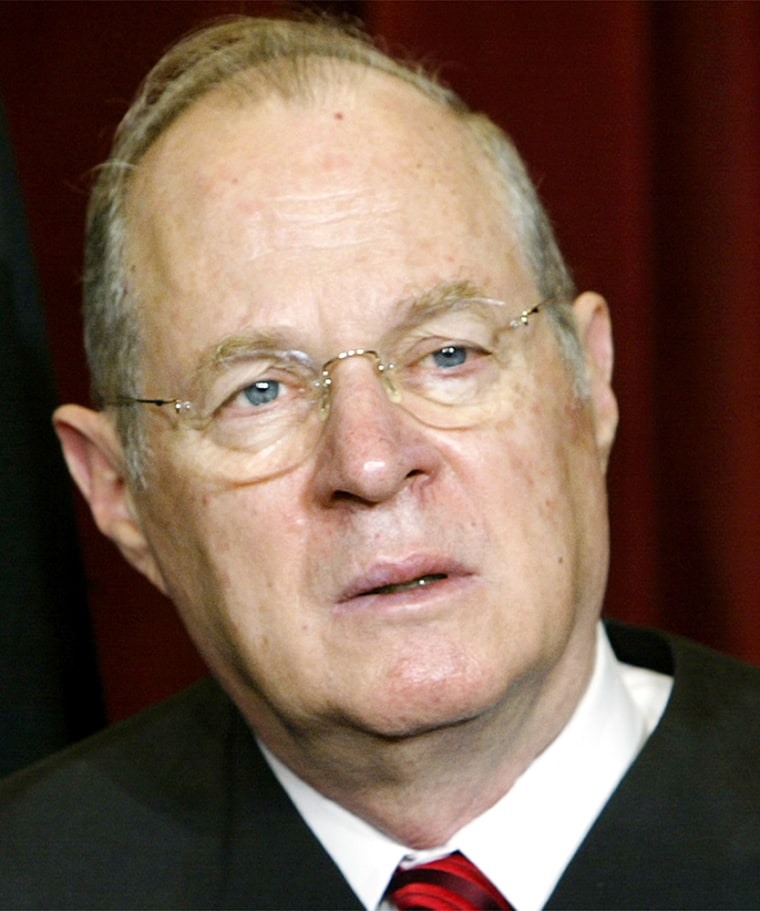As lawyers and court watchers have long suspected, the Supreme Court in 1992 was ready to effectively overturn the landmark Roe v. Wade ruling legalizing abortion, but Justice Anthony M. Kennedy got cold feet, and the vote went the other way.
Internal notes in the papers of late Justice Harry Blackmun provide a glimpse of the secretive dealings that led to the court’s ruling in Planned Parenthood v. Casey that year. Blackmun’s extensive records from 24 years on the court were opened Thursday, the fifth anniversary of his death.
Blackmun’s paper legacy brought scholars and others to the Library of Congress’ vast reading room Thursday to rifle through boxes containing the documents.

His voluminous files contain draft after draft of the Casey ruling with his handwritten notes in the margins, sometimes agreeing with other justices and sometimes looking for ways to change their minds. The files also contain memos from Blackmun’s law clerks suggesting changes or strategies that might persuade more justices to join his views.
There was nothing immediately apparent in the correspondence or other documents to show why Kennedy changed his mind.
How votes were cast
Blackmun’s notes show that Chief Justice William Rehnquist led a five-justice majority to overrule Roe. Four other justices voting with Rehnquist were Byron White, Antonin Scalia, Clarence Thomas and Kennedy. Rehnquist himself was to write the majority opinion.
Unbeknownst to him, Kennedy was having second thoughts, and agreed with Justices Sandra Day O’Connor and David Souter, to a compromise position.
The Casey ruling carved out a middle ground that upheld a woman’s right to abortion largely free from state regulation. The case was argued in April and Rehnquist was at work on his majority ruling, when Kennedy sent a note to Blackmun.
“I need to see you as soon as you have a few moments. I want to tell you about a new development in Planned Parenthood v. Casey. It should come as welcome news.”
Blackmun picked up a pink memo pad and scribbled, “Roe Sound.” Blackmun had written the Roe ruling 18 years before, and had guarded it from previous attack from conservative justices.
The notes show that the court was not unaware of the case’s political implications. At one point, one of Blackmun’s law clerks wrote that the three centrist justices could pay a price for disagreeing with the White House view on abortion.
The unmarried Souter might lose his popularity with then-first lady Barbara Bush as her favorite “most-eligible bachelor” to invite to White House dinners, the clerk wrote.
It’s been more than a decade since intimate details of the court’s inner workings were revealed in Justice Thurgood Marshall’s papers, which elicited bitter criticism within the court because the papers include secret memos and unpublished draft opinions in controversial cases.
Most current justices are expected to ensure their files and any embarrassing secrets they might hold will be protected long after their deaths.
'Copious notes'
Blackmun, like Marshall, served 24 years on the court and into his 80s, retiring in 1994. He accumulated far more correspondence than Marshall.
The appointee of President Nixon “took copious notes and never threw away any of his papers,” Washington lawyer David Frederick said.
His authorship of Roe v. Wade brought him more than 60,000 angry letters and repeated threats on his life.
Blackmun, who died at age 90, served with eight of the current nine justices. Stephen Breyer was chosen as his successor in 1994.
Blackmun also donated his papers to the Library of Congress, more than 530,000 items, with a release date five years after his death.